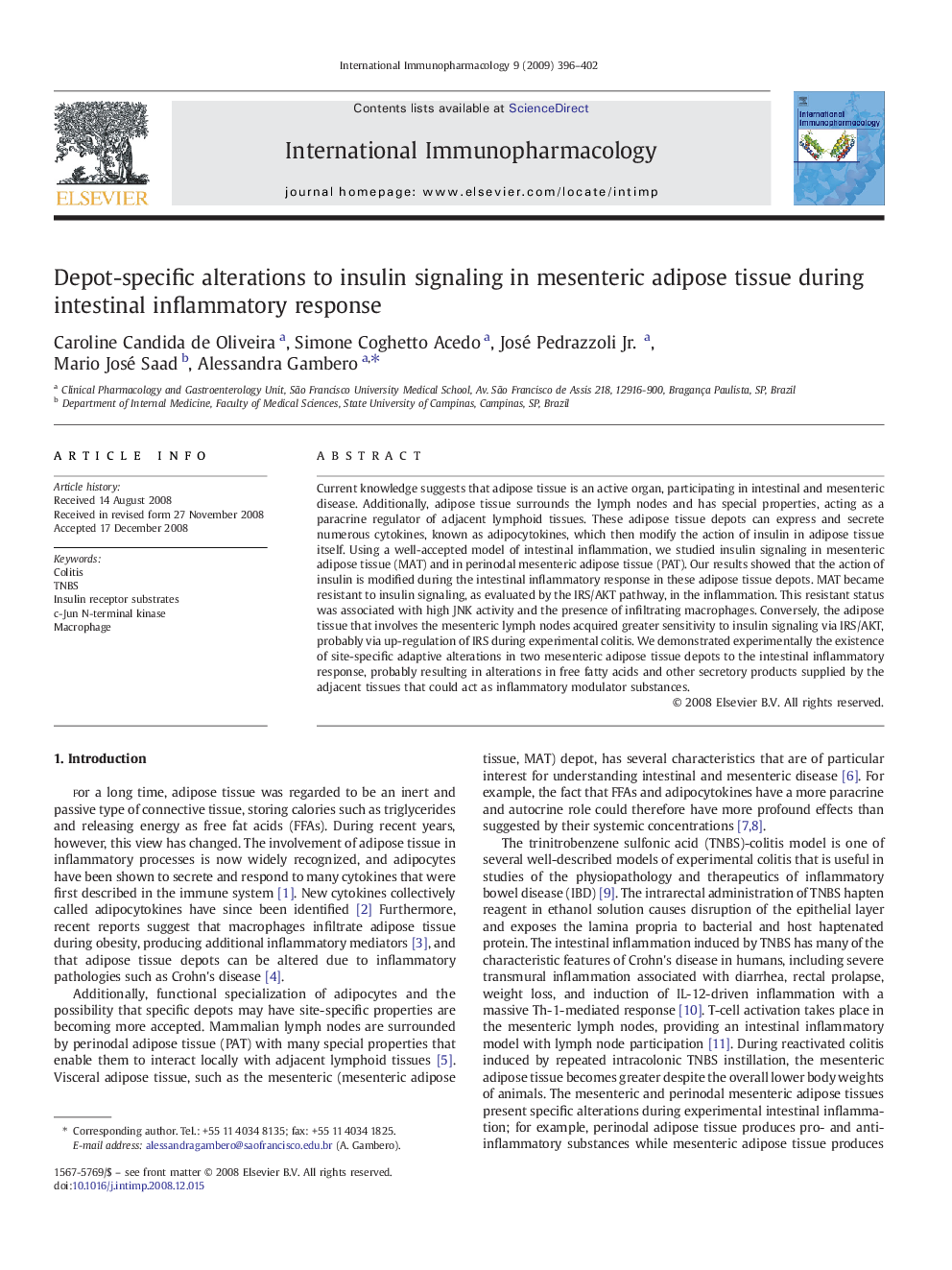| Article ID | Journal | Published Year | Pages | File Type |
|---|---|---|---|---|
| 2541861 | International Immunopharmacology | 2009 | 7 Pages |
Current knowledge suggests that adipose tissue is an active organ, participating in intestinal and mesenteric disease. Additionally, adipose tissue surrounds the lymph nodes and has special properties, acting as a paracrine regulator of adjacent lymphoid tissues. These adipose tissue depots can express and secrete numerous cytokines, known as adipocytokines, which then modify the action of insulin in adipose tissue itself. Using a well-accepted model of intestinal inflammation, we studied insulin signaling in mesenteric adipose tissue (MAT) and in perinodal mesenteric adipose tissue (PAT). Our results showed that the action of insulin is modified during the intestinal inflammatory response in these adipose tissue depots. MAT became resistant to insulin signaling, as evaluated by the IRS/AKT pathway, in the inflammation. This resistant status was associated with high JNK activity and the presence of infiltrating macrophages. Conversely, the adipose tissue that involves the mesenteric lymph nodes acquired greater sensitivity to insulin signaling via IRS/AKT, probably via up-regulation of IRS during experimental colitis. We demonstrated experimentally the existence of site-specific adaptive alterations in two mesenteric adipose tissue depots to the intestinal inflammatory response, probably resulting in alterations in free fatty acids and other secretory products supplied by the adjacent tissues that could act as inflammatory modulator substances.
